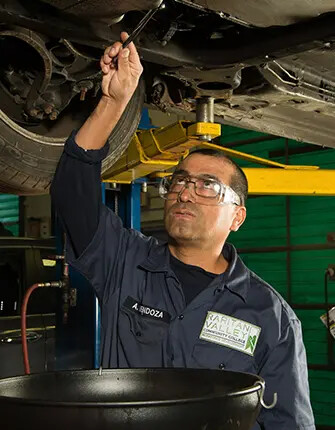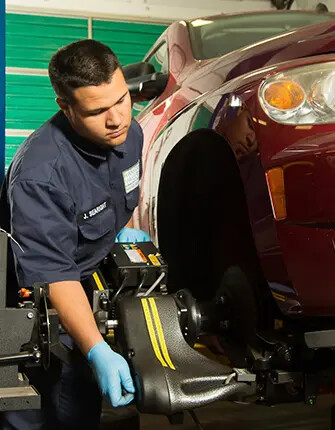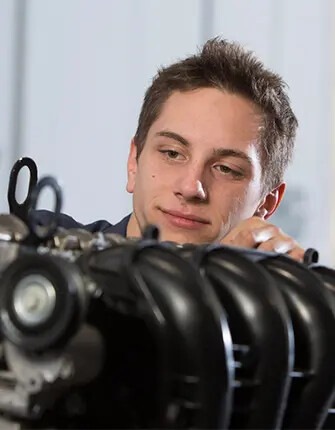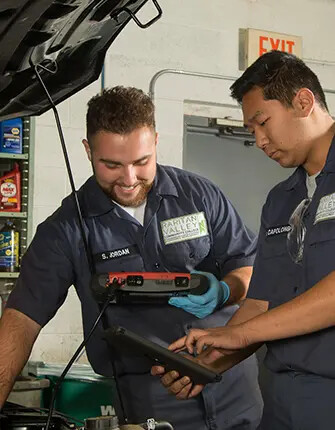The Automotive Technology program is a hands-on, competency-based program to provide you with the knowledge and skills that employers expect. RVCC is committed to match your job placement needs at the end of the training program for you to be successful in the automotive industry while fulfilling your passion. The program mirrors a real-world workplace so you can learn in an actual shop environment. All program standards have been set to match the performance expectations of current automotive technicians working in this field. Students have the opportunity to develop diagnostic and mechanical competency in the automotive field. The program supports the National Institute for Automotive Service Excellence (ASE) Certified Automobile Technician Training Program standards. Graduates of the Automotive Technology program will be prepared to complete ASE exams and can substitute their training for one year of the two years of work experience required to become ASE Certified.
Pursue one of these Automotive Career Paths at RVCC:
- 1-year Certificate Track (35-36 credits) – Prepare for an entry-level technician position. All classes college credit worthy.
- 2-year AAS Degree Track (60 credits) – Prepare for any higher level Automotive Technician position. If you choose to pursue further education in this field, all credits in this program are fully transferable towards a B.S. in Automotive Technology Management at the Pennsylvania College of Technology (the transfer agreement hasn’t been finalized yet).
- Additional Option: Automotive Road Care course
RVCC has partnered with manufacturers to bring a higher level of industry certifications to the Automotive Technology program.
- Mopar CAP Local specialized certification track to become a Chrysler Certified Technician at the second level of technician training status.
- Subaru University specialized certification track to become a Subaru Certified Technician at the second level of technician training status.
- Ford ACE specialized certification track to become a Ford Certified Technician.
- Toyota specialized certification track to become a Toyota Certified Technician.
Once you are trained, we’ll help you find the job that works for you. The program is eligible for federal and state student financial aid.













